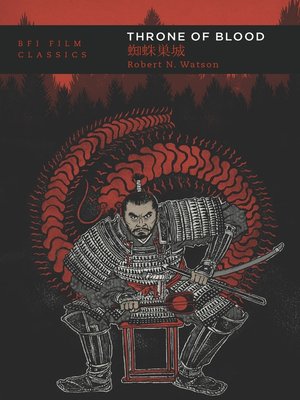
Sign up to save your library
With an OverDrive account, you can save your favorite libraries for at-a-glance information about availability. Find out more about OverDrive accounts.
Find this title in Libby, the library reading app by OverDrive.



Search for a digital library with this title
Title found at these libraries:
| Library Name | Distance |
|---|---|
| Loading... |
Throne of Blood (1957), Akira Kurosawa's reworking of Macbeth, is widely considered the greatest film adaptation of Shakespeare ever made.
In a detailed account of the film, Robert N. Watson explores how Kurosawa draws key philosophical and psychological arguments from Shakespeare, translates them into striking visual metaphors, and inflects them through the history of post-World War II Japan. Watson places particular emphasis on the contexts that underlie the film's central tension between individual aspiration and the stability of broader social and ecological collectives - and therefore between free will and determinism.
In his foreword to this new edition, Robert Watson considers the central characters' Washizu and his wife Asaji's blunder in viewing life as a ruthless competition in which only the most brutal can thrive in the context of an era of neoliberal economics, resurgent 'strongman' political leaders, and myopic views of the environmenal crisis, with nothing valued that cannot be monetized.
In a detailed account of the film, Robert N. Watson explores how Kurosawa draws key philosophical and psychological arguments from Shakespeare, translates them into striking visual metaphors, and inflects them through the history of post-World War II Japan. Watson places particular emphasis on the contexts that underlie the film's central tension between individual aspiration and the stability of broader social and ecological collectives - and therefore between free will and determinism.
In his foreword to this new edition, Robert Watson considers the central characters' Washizu and his wife Asaji's blunder in viewing life as a ruthless competition in which only the most brutal can thrive in the context of an era of neoliberal economics, resurgent 'strongman' political leaders, and myopic views of the environmenal crisis, with nothing valued that cannot be monetized.







